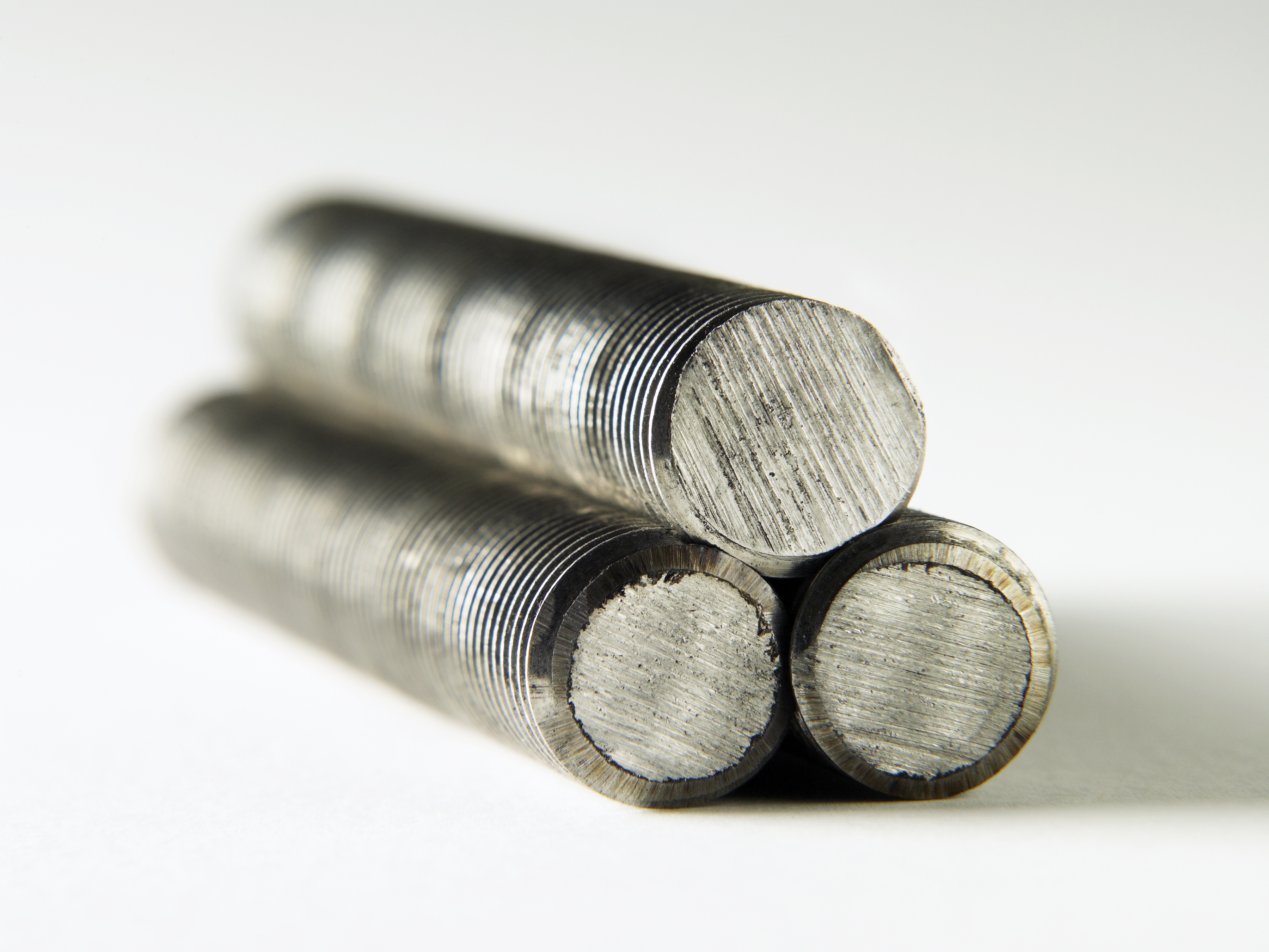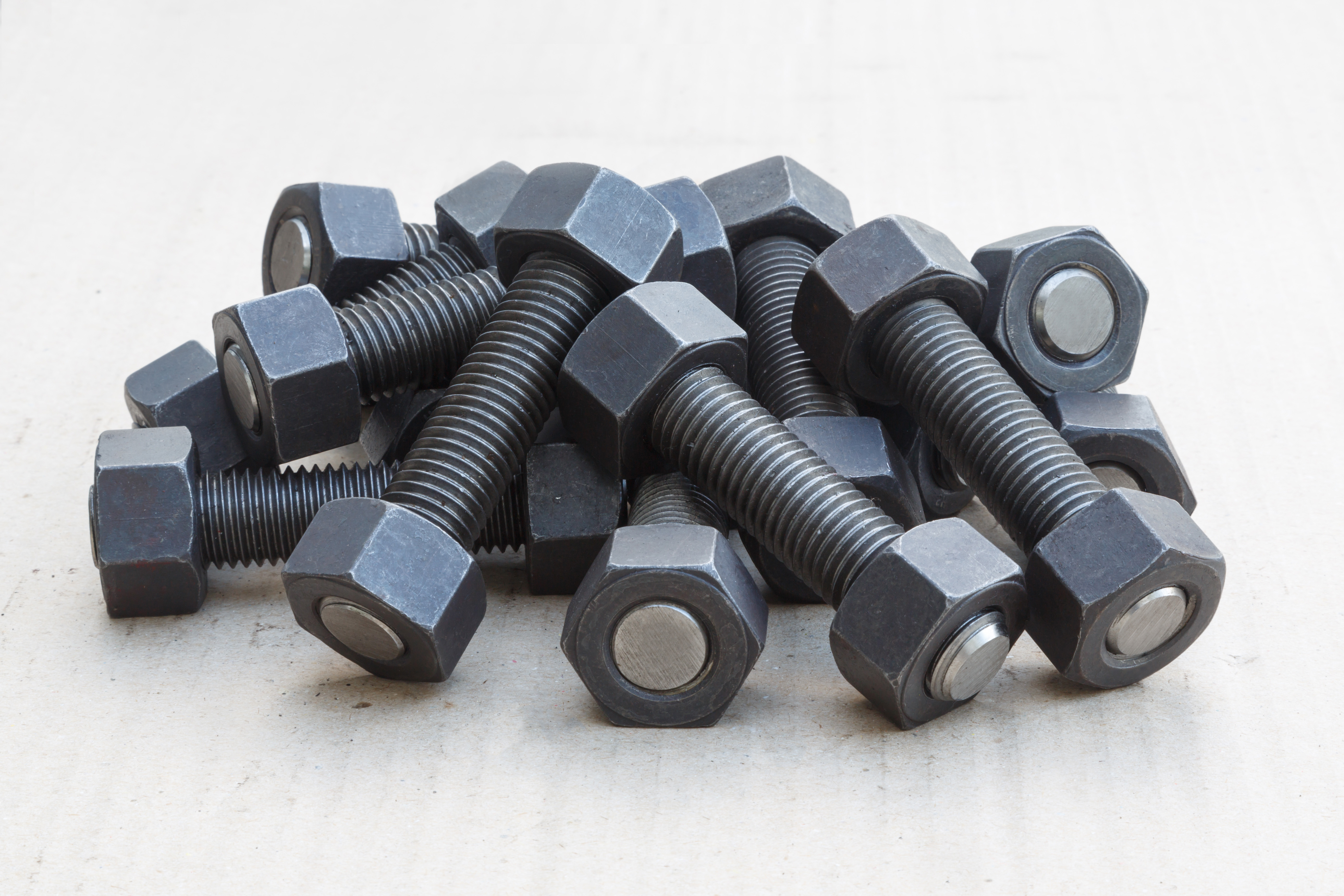Continuous Thread Stud Bolts

Lincoln Structural Solutions Manufactures Continuous Thread Stud Bolts In House
Continuous thread stud bolts are versatile and robust fastening components designed for various industrial and construction applications. These bolts feature a continuous helical thread along their entire length, providing a secure grip and allowing for easy adjustment and installation.
Key features of continuous thread stud bolts include:
-
Flexible Installation: Continuous thread stud bolts offer flexibility in installation, allowing for adjustments to accommodate varying thicknesses of materials or to compensate for misalignment during assembly.
-
Uniform Clamping Force: The continuous thread design ensures uniform clamping force distribution along the entire length of the bolt, enhancing the stability and integrity of the assembled components.
-
High Strength: Manufactured from durable materials such as carbon steel, stainless steel, or alloy steel, continuous thread stud bolts offer high tensile strength and resistance to deformation under load.
-
Corrosion Resistance: Many continuous thread stud bolts are available with corrosion-resistant coatings or materials, making them suitable for use in harsh environments or outdoor applications.
-
Versatility: Continuous thread stud bolts find applications in a wide range of industries, including construction, automotive, aerospace, machinery, and infrastructure projects.
-
Customization Options: These bolts are available in various lengths, diameters, and thread pitches to suit specific project requirements. Additionally, they may feature different end configurations, such as chamfered or pointed ends, to facilitate installation and alignment.
Whether used for securing structural components, machinery assembly, or piping systems, continuous thread stud bolts offer reliable and efficient fastening solutions, contributing to the durability and performance of various engineered structures and systems. Trust in the versatility and strength of continuous thread stud bolts for your next project's fastening needs.
Lincoln Structural Solutions specializes in manufacturing threaded studs meeting the ASME B31.3 / B16.5 requirements.
ASME B31.3 is a code standard established by the American Society of Mechanical Engineers (ASME) that pertains to the design, construction, inspection, and testing of process piping systems. While ASME B31.3 primarily focuses on piping systems, it also includes requirements for certain components used within these systems, including threaded studs.
Threaded studs play a crucial role in piping systems, as they are used for various applications such as supporting pipe hangers, attaching flanges, and securing equipment to structural supports. ASME B31.3 provides guidelines and requirements for the selection, design, installation, and inspection of threaded studs to ensure the integrity and reliability of piping systems.
- Material Requirements: ASME B31.3 specifies the materials that threaded studs must be made from to ensure adequate strength, corrosion resistance, and suitability for the intended service conditions. Common materials include carbon steel, stainless steel, and alloy steel, with specific requirements for chemical composition, mechanical properties, and heat treatment.
- Design and Dimensions: The standard outlines the design and dimensional requirements for threaded studs, including thread size, pitch, length, diameter, and other geometric features. These specifications ensure compatibility with pipe hangers, supports, and other components within the piping system.
- Thread Specifications: ASME B31.3 provides detailed specifications for threads on threaded studs, including thread form, pitch diameter, thread depth, and thread engagement. These specifications ensure proper thread fit and alignment with mating components such as nuts, bolts, and threaded holes in piping supports.
- Installation and Assembly: The standard includes guidelines for the proper installation and assembly of threaded studs, including torque requirements, thread engagement, and alignment. Proper installation practices are critical to ensuring the integrity and stability of piping systems, minimizing the risk of leaks, failures, or structural issues.
- Inspection and Testing: ASME B31.3 also includes requirements for the inspection and testing of threaded studs to verify compliance with specified standards and ensure quality and reliability. Inspection methods may include visual inspection, dimensional checks, non-destructive testing, and mechanical testing to assess the integrity and performance of threaded studs.
Lincoln Structural Solutions manufactures these studs in-house, employing traceable, tested, and inspected materials to ensure the utmost quality and reliability, making them ideal for use in commercial and nuclear industries.
LSS manufactures continuous thread studs in a wide array of materials. Including the following exotic steels.
Inquire about any material not listed below.
INCONEL
Inconel® 600, UNS N06600
Inconel® 601, UNS N06601
Inconel®625, UNS N06625
Inconel®718, UNS N07718
INCOLOY
Incoloy® 800H, UNS N08810
Incoloy® 800HT, UNS N08811
Incoloy® 825, UNS N08825
Incoloy® 925, UNS N09925
HASTELLOY
Hastelloy® C-276, UNS N10276
Hastelloy® C-22, UNS N06022
Hastelloy® B-2, UNS N10665
Hastelloy® G-30, UNS N06030
MONEL
Monel® 400, UNS N04400
Monel® K-500, UNS N05500
NICKEL
Nickel 200, UNS N02200
Nickel 201, UNS N02201
ZIRCONIUM
Zr 702, UNS R60702
Zr 705, UNS R60705
TITANIUM
Titanium Gr-2, UNS R50400, DIN EN 3.7035
Titanium Gr-5, UNS R56400, DIN EN 3.7164, 3.7165
Titanium Gr-7, UNS R52400, DIN EN 3.7235
Titanium Gr-23, UNS R56401
6% MOLY
AL-6XN®, UNS N08367
25-6Mo, Alloy 926, UNS N08926 (N08925)
254 SMO, UNS S31254,
STAINLESS STEEL - Class 1 and Class 2
A-286 Stainless Steel, UNS S66286
304/304L Stainless Steel, UNS S30403, A193 B8
310S Stainless Steel, UNS S31008
316/316L Stainless Steel, UNS S31603, A193 B8M
317L Stainless Steel, UNS S31703
321 Stainless Steel, UNS S32100
904L Stainless Steel, UNS N08904
Nitronic® 60, UNS S21800
DUPLEX STAINLESS STEEL
Duplex 2205, UNS S32205, S31803
Super Duplex 2507, UNS S32750
Super Duplex S32760, UNSS32760
ASTM A193 is a specification covering alloy and stainless steel bolting materials for high-temperature or high-pressure service. Within this specification, studs are categorized into different grades and classes based on their material composition, mechanical properties, and intended use.
LSS is able to supply most grades and both Class 1 and Class 2 strain hardened studs.
ASTM A320 is a specification that covers the requirements for carbon and alloy steel bolts and studs for low-temperature service. It is commonly used in applications where materials must withstand extremely cold temperatures, such as cryogenic storage tanks, refrigeration systems, and pipelines transporting liquefied gases.
LSS supplies many grades including L7, L7M, L43, B8, B8M, and B8T. Each grade is designed for different service conditions and environments.
Grade L7: This grade is made of carbon steel and is typically used in low-temperature applications. It is commonly used in pressure vessels and piping systems for cryogenic service.
Grade L7M: Similar to Grade L7, Grade L7M is also made of carbon steel but is subjected to additional heat treatment to enhance its mechanical properties for low-temperature service.
Grade L43: This grade is made of alloy steel and is suitable for low-temperature service. It offers higher strength and toughness compared to Grade L7 and is often used in applications requiring greater mechanical properties.
Grades B8, B8M, and B8T: These grades are made of stainless steel and are used in low-temperature applications where corrosion resistance is required. Grade B8 is made of Type 304 stainless steel, Grade B8M is made of Type 316 stainless steel, and Grade B8T is made of Type 321 stainless steel.
ASTM A307 is a specification that covers carbon steel bolts, studs, and threaded rods of various grades intended for general-purpose applications.
Grade and Class: ASTM A307 does not specify specific grades or classes for studs. Instead, it categorizes bolts and threaded rods into two grades: Grade A and Grade B. Grade A studs are made from low-carbon steel and have a tensile strength ranging from 60,000 to 100,000 psi, while Grade B studs have a higher tensile strength ranging from 60,000 to 115,000 psi.
Thread Type: A307 studs feature standard UNC (Unified National Coarse) threads, making them compatible with corresponding nuts and other threaded components.
Finish: A307 studs are typically available in plain finish or zinc-coated finish. The zinc coating provides corrosion resistance, making them suitable for use in indoor and outdoor applications where exposure to moisture or corrosive elements is a concern. They are also available in Hot Dip Galvanized.
While ASTM A307 studs are not designed for high-strength or specialized applications, they provide a cost-effective and reliable solution for many general-purpose fastening needs. It's essential to ensure that the selected studs meet the requirements of the specific application and are installed correctly to ensure safety and performance.

